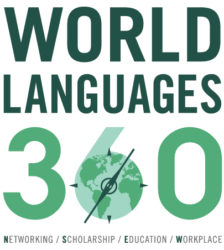We are thrilled to announce the recipients of our World Languages 360 – Extempore grants! Please join us in celebrating the following projects which will take place during the span of the September, 2024 to May, 2025 academic year. These grants represent multiple languages, multiple course levels, and multiple countries. Each successful proposal demonstrated a potential to impact language teaching and learning beyond the immediate learning community where they will be tried and tested. Each also represented a thoughtful and purposeful leveraging of Extempore’s capabilities. Below you will find excerpted and lightly edited portions of the successful proposals, specifically the portions that impressed us most.
Increasing World Language Proficiency Across the Communicative Modes with Extempore
Our goals for this project are as follows:
* Increased Language Proficiency: Students will demonstrate improved language skills in the interpretive, interpersonal, and presentational communication modes due to Extempore usage.
*Increased Confidence: Students will gain confidence in expressing themselves spontaneously and collaborating with others in the target language.
*Higher Engagement: Students will actively participate in language learning by completing activities and assessments and interacting with authentic content.
* Pronunciation: Students will refine their pronunciation and intonation through regular speaking practice on Extempore.
* Effective Communication: Students will learn to communicate effectively in real-world situations, bridging the gap between classroom learning and practical application.
* Cultural Competence: Students will develop cultural awareness and understanding by exposing students to the products, practices, and perspectives of the target language communities through the use of authentic resources.
* Collaborative Learning: Students will engage in peer activities, providing constructive feedback and learning from each other.
* Faculty Integration: Teachers will incorporate Extempore seamlessly into their curriculum, enhancing overall language instruction.
* Long-Term Language Retention: Students will retain language skills beyond the grant period, ensuring lasting impact, and future enrollment in upper level language classes.
Extempore as an Outlet for Language Production in Larger Classrooms: the Case of a Community College in Brazil
Educator: tasks will be developed considering the studies in Learning Experiences Design, Second Language Acquisition, and Cognitive Load theories. Multimedia feedback will be provided as needed.
Learners: individually, students will use Extempore weekly to produce spontaneous oral language in a safe, low-stress environment of their choice. Individually, it will also be used to submit versions of their written productions every two weeks approximately.
All in all, Extempore will serve the purpose of a “language lab” for students to produce language and receive personalized feedback. Oral feedback, for instance, is uncommon in Distance Education. I plan to use multimedia feedback in to create rapport and motivate students through personalization.
Using Extempore to Enhance L2 Pronunciation: An Innovative Approach to Prioritizing Intelligibility and Intercultural Awareness
Enhancing L2 pronunciation through an innovative and integrative approach prioritizing intelligibility as a fundamental objective of contemporary pronunciation instruction. This method integrates a progressive sequence of comprehensible task types, aided by Extempore, to foster clear pronunciation in L2 while promoting phonological and intercultural awareness. Extempore will play a pivotal role in assisting the teaching and learning of pronunciation strategies and skills, ultimately fostering self-regulated L2 learners and promoting intercultural sensitivity.To develop and implement this project, we will first design a lesson cycle for Argentinian university students majoring in teaching English as an L2. The project incorporates intelligibility-focused pronunciation tasks, structured progressively to build on learners’ existing skills. Using Extempore, we will create integrative tasks, teacher/peer assessments, and feedback sessions to promote clear L2 pronunciation while enhancing phonological awareness. Integrative activities will include reciprocal and non-reciprocal communication tasks, listening comprehension activities featuring diverse accent varieties, and speaking and reflective tasks, all facilitated by Extempore. Teachers will receive training on effectively using Extempore and integrating intercultural content into their lessons. A pretest will be administered to assess initial pronunciation skills and intercultural awareness, followed by a posttest after instruction to collect quantitative data. The results will be statistically analyzed using various tests to identify relationships between task performance and learning outcomes. Extempore will also be used to collect qualitative data. Continuous assessment and feedback will ensure that the tasks meet learners’ pronunciation needs and support self-regulation. Finally, we will expand the project, by providing ongoing support to teachers and learners to sustain improvements in pronunciation and intercultural sensitivity.
Increasing self-reflection and comfort with planned and unplanned L2 speaking skills with Extempore
Speaking assignments in language classes are often filled with anxiety for many students, especially spontaneous, unrehearsed performances but even presentational speaking can seem daunting. Speaking assignments with planning available before recording might become scripted, too polished, less diagnostic of students’ actual abilities in a real life situation. Both planned and unplanned speaking assignments should have a place in the curriculum though as they both help to develop positive attitudes towards speaking skills. Students will use Extempore on a regular basis in my classes to complete speaking assignments, for which they receive instructor feedback (text/audio) and also have a chance to self-reflect on specific areas such as overall completion, vocabulary, pronunciation, and grammar (DeVrind, E. et al, 2024). Students will also get a chance to re-record some of their assignments as task repetition. While initially I will provide time to review questions, eventually I would like to try the Simulated Conversation option.
*Learners will be able to reflect on the appropriateness of resources to aid different speaking tasks such as rehearsal, scripting, or immediate responses.
*Learners will explore strategies such as self-reflection, self-assessments, questionnaires, and maybe peer feedback in order to become more comfortable with unrehearsed responses to speaking prompts around course topics.
*Learners will be able to select and reflect on their preferred speaking task modalities (video, audio prompts or responses).
*Learners will attend to a variety of feedback received on submitted responses and evaluate their effectiveness.
*Learners and instructors will explore the full license features of synchronous and asynchronous groups assignments and evaluate their advantages over individual assignments (and especially how it may lead to more collaboration and interaction in our online sections).
Expanding Beyond the Classroom: Effective Communication in Spanish through ChatGPT, Extempore, and Virtual Immersion Experience (VIE)
This project will integrate effective strategies for speaking and writing, focusing on real-life applications of Spanish. The proposal includes a cultural immersion component, featuring virtual meetings with peers from diverse Latinx/Hispanic/Spanish backgrounds. This addition aims to enhance students’ socio-cultural competence and strengthen their understanding of socio-pragmatic issues in the target language. The Virtual Immersion Experience (VIE) is designed to demonstrate that transformative, lifelong learning in FL2 can begin at the elementary level. Overall, the project will underscore the value of learning Spanish as an FL2 and its relevance beyond the classroom setting.
This project also incorporates AI technology to reduce students’ anxiety and enhance their confidence in language use. ChatGPT will be used for in-class activities where students will generate conversations in Spanish, while Extempore will help assess and track students’ progress. The project will be implemented across the 2024-2025 academic year in Spanish Elementary I and II courses, and the findings will be presented in academic conferences and workshops.This project seeks to enrich the backwards design already implemented in these courses by revisiting learning outcomes to be aligned to the skills students need as global (or glocal) citizens. Consequently, students will be more engaged by improving their perception of what language learning can do for them in the world.


